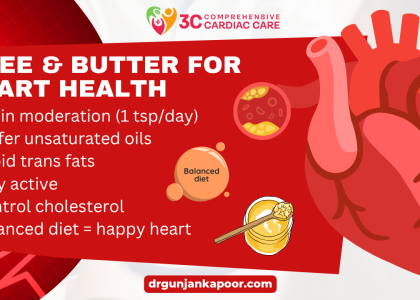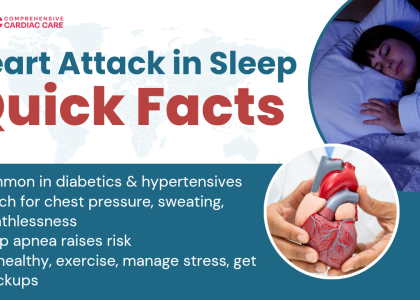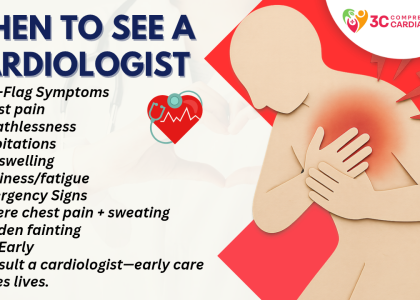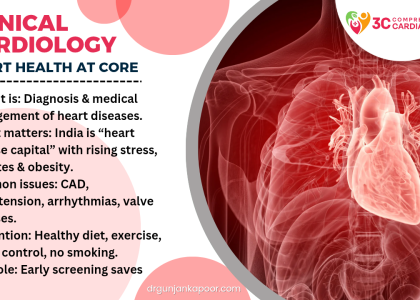Can COVID-19 Affect Your Heart? What We Know So Far
By Dr. A. Mehta, Cardiologist
When we first faced COVID-19, the world zoomed in on its respiratory effects. But as waves came and went, we learned that this virus can also strike where it hurts the most—your heart. ❤️
Whether you’ve had a mild case, were hospitalized, or still feel “off” weeks later, post-COVID cardiac complications are real—and worth paying attention to. Here’s what we know so far.
COVID-19: More Than a Lung Infection
COVID-19 is caused by the SARS-CoV-2 virus, which attaches to ACE2 receptors in the body. These receptors aren’t just in your lungs—they’re also in your heart, blood vessels, and kidneys. This means the virus can travel and directly impact your cardiovascular system.
How It Happens:
Inflammation: The body’s immune response can lead to a cytokine storm, which inflames the heart muscle (myocarditis).
Clotting: COVID increases blood clot risks—raising chances of heart attacks and strokes.
⚡ Stress on the heart: Fever, low oxygen levels, and high heart rate all put strain on the cardiovascular system.
Post-COVID Symptoms: What to Watch For
Even after recovery, Long COVID can continue affecting the heart. Many patients—even young, healthy individuals—report symptoms like:
Racing heartbeat (tachycardia)
Dizziness or fainting
Unexplained fatigue
️ Shortness of breath
Chest pain or pressure
These may be signs of:
Myocarditis (heart inflammation)
Pericarditis (inflammation of heart lining)
Postural Orthostatic Tachycardia Syndrome (POTS)
Heart failure or arrhythmias
What Do The Studies Say?
New research shows that heart issues can persist even months after mild COVID cases. Here’s what major studies are telling us:
Key Findings:
A 2022 study in Nature Medicine found increased heart risks for up to a year after infection, even in people without prior heart disease.
Another study showed a 63% higher risk of heart attack post-COVID.
Young adults are not exempt—cases of myocarditis and palpitations are on the rise in post-COVID teens and 20-somethings.
Translation: COVID doesn’t care about age or fitness level.
❤️ Who’s at Risk?
While anyone can face heart-related complications, some groups are at higher risk:
People with pre-existing conditions (diabetes, hypertension, obesity)
Those who had severe COVID
Older adults
Unvaccinated individuals
But surprising numbers of previously healthy people have developed heart symptoms post-COVID. That’s why it’s essential to stay alert.
⚕️ My Advice as a Cardiologist
Every week, I meet patients who “don’t feel right” months after COVID. Often, tests reveal issues like minor arrhythmias or inflammation, which can be managed if caught early.
✅ If you’ve had COVID and are experiencing:
Persistent chest discomfort
New or worsening fatigue
Rapid or irregular heartbeat
Please don’t ignore it. Get evaluated by a cardiologist.
The Role of Vaccination
One of the best defenses against post-COVID complications—including cardiac ones—is getting vaccinated and boosted.
While some worry about rare side effects like vaccine-related myocarditis (mostly in young males), the risk of heart damage from COVID is significantly higher.
️ Bottom line: The vaccine protects your heart more than it harms it.
♀️ Healing the Heart Post-COVID
If you’re dealing with post-COVID symptoms:
♂️ Ease into physical activity—don’t rush!
Eat heart-healthy (more plants, less processed)
♀️ Manage stress with mindfulness or gentle yoga
Prioritize sleep and hydration
Follow up regularly with your doctor
Many people recover fully, but tracking your symptoms is key.
✨ Final Thoughts
COVID-19 is not just a respiratory virus. It has a real, measurable impact on your heart—and it doesn’t always show up right away. The good news? With awareness, early detection, and care, you can protect your heart for the long haul.
So listen to your body. It’s always telling you something.
Stay safe, stay healthy.









